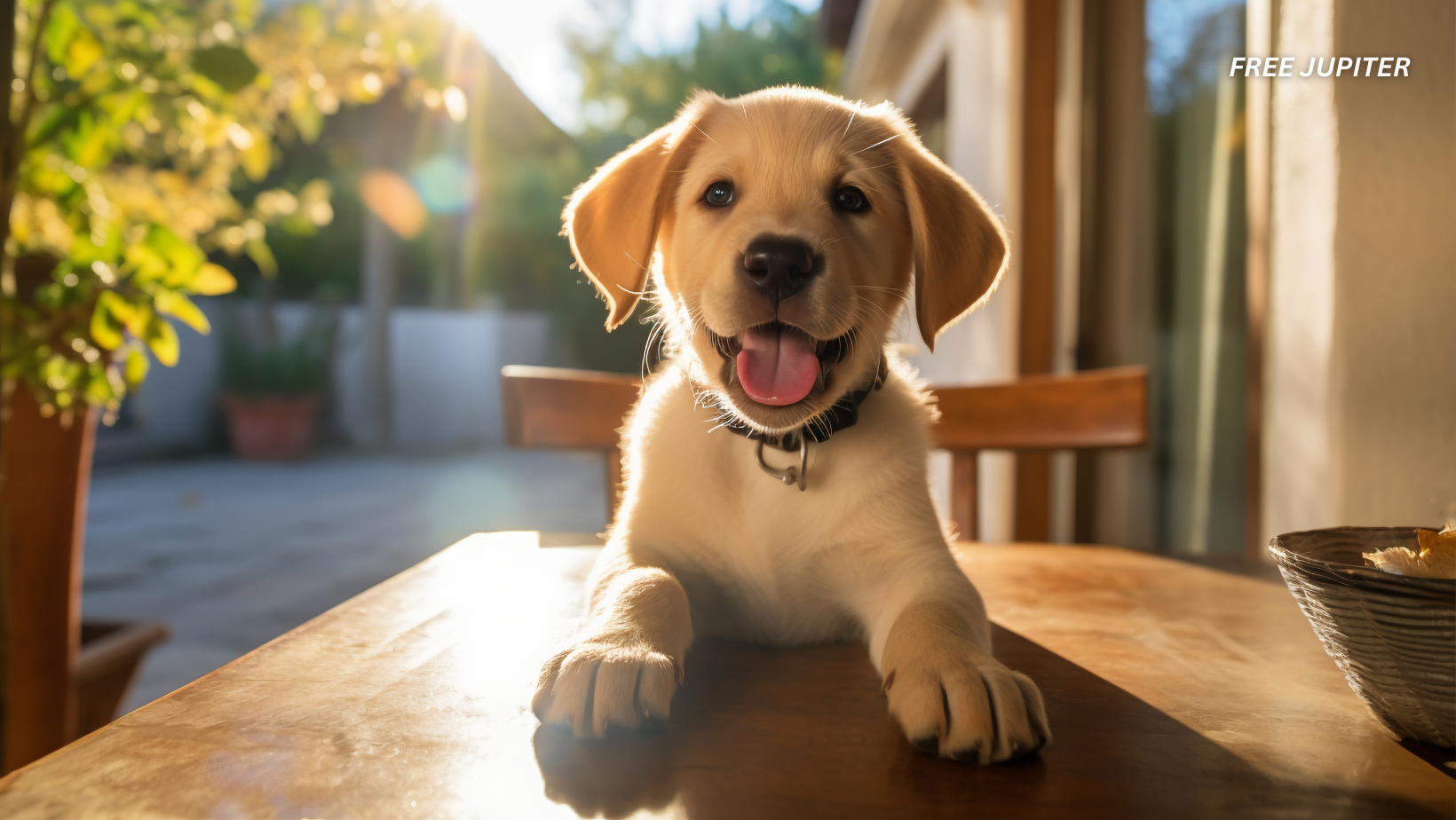Friendly Note: FreeJupiter.com shares general info for curious minds 🌟 Please fact-check all claims—and always check health matters with a professional 💙
The age-old rivalry between cats and dogs isn’t just about fur, whiskers, or whether you’re cleaning a litter box or picking up poop in the park. For some, the choice between cats and dogs goes a little deeper. In fact, psychologists have found that our preference for one over the other can offer real insight into our personality traits and behaviors.
Now, that doesn’t mean loving dogs makes you better—or that preferring cats makes you some mysterious loner. But if you find yourself drawn more to canine companionship, science says there may be a few things you naturally have in common with your furry friend. And yes, some of those might explain why you’d rather chase frisbees at the beach than curl up in a sunbeam with a book (though no shame if you like both).
Let’s dig into what psychology has to say about dog lovers and the distinct personality traits they often share.
1. Dog People Are Often More Outgoing and Social
It probably comes as no surprise that people who love dogs tend to be more extroverted. After all, dogs are social animals. They wag their tails at strangers, crave attention, and thrive on human interaction. So it makes sense that the people who love them might also enjoy a little social sparkle.
A study from Carroll University found that dog lovers were more likely to describe themselves as energetic, enthusiastic, and outgoing. They tended to score higher in what psychologists call “extraversion,” which includes things like enjoying social events, having lots of friends, and being comfortable in group settings.
Dr. Denise Guastello, one of the researchers involved in the study, noted that dog people are often more likely to seek out social experiences—think dog parks, group hikes, neighborhood walks, or even chatting up fellow pet parents while out and about. A dog acts as a natural icebreaker, after all.
Meanwhile, cat lovers (who are often more introverted) may be more content with quieter company, including their quiet, snoozing feline.
Another study by the Waltham Petcare Science Institute backed this up, finding that dog owners are significantly more likely to interact with their neighbors. In fact, dog walking was listed as one of the top five ways people make new friends. If you’ve ever made small talk while untangling leashes or swapped training tips with a fellow dog owner, you know how true this is.
So, if you’re someone who thrives in social settings and naturally makes friends wherever you go, chances are you might just be a dog person at heart.
Read more: Sea Otters Hold Hands While Sleeping So They Don’t Lose Each Other In The Water
2. Dog People Gravitate Toward Open Spaces and Nature
If you picture your dream home as a cozy cottage near the woods or a house with a big backyard, rather than a high-rise apartment in the city, you might also be more inclined toward dog ownership.
A study based on Facebook user data found that dog lovers are more commonly found in rural and suburban areas, while cat owners tend to cluster in cities. This likely has a practical explanation: dogs need space. They need places to run, sniff, and do their dog things. Cats, on the other hand, are usually content to stretch out on a windowsill or perch atop a fridge, whether the space is 500 square feet or 5,000.
But there’s a personality layer here too.
People who prefer dogs may also have an inner craving for freedom, movement, and open-air activities. They might feel more comfortable in nature, value quiet escapes over crowded scenes, and be drawn to places where they—and their pups—can roam.
Of course, this isn’t a hard-and-fast rule. Plenty of urbanites are doting dog parents, just as many cat lovers live far from the city. But the general trend suggests that dog people are often more drawn to lifestyles that allow space—for both adventure and breathing room.
3. Dog People Are Generally More Physically Active
This one might seem obvious, but it’s worth pointing out just how active dog lovers tend to be—not only when it comes to taking care of their pets, but in life overall.
A study by OnePoll on behalf of Mars Petcare found that dog owners are significantly more likely to engage in daily physical activity than cat owners. And that makes sense—dogs need walks, runs, playtime, and regular outdoor stimulation. That daily responsibility naturally gets their humans up and moving.
But it doesn’t stop there.
The same survey revealed that 25% of dog owners say they run regularly, compared to only 16% of cat owners. Dog lovers also reported being more likely to take part in group fitness classes, yoga sessions, team sports, and even spontaneous dance parties in the kitchen (okay, we made that last one up, but we’re sure it happens).
This suggests that dog people aren’t just walking more because they have to—they’re more likely to genuinely enjoy an active lifestyle.
And honestly, who can say no to an excited pup with a leash in their mouth, practically begging for adventure?
Read more: Hero Cat Helps Scientists Uncover New Virus for the Second Time
4. Dog Lovers Prefer Routine and Structure
Dogs are creatures of habit. They know when it’s mealtime, walk time, or bedtime, sometimes better than their humans do. And they feel safest when their daily rhythm is predictable.
Interestingly, many dog owners reflect this same love for order and structure. They’re more likely to enjoy planning, setting goals, and keeping to a schedule. That might extend to work life (think: punctual, organized, task-oriented) and even social routines.
In contrast, cat people tend to embrace a more spontaneous, go-with-the-flow lifestyle—mirroring their feline friends who live by their own mysterious schedules.
Of course, structure doesn’t mean rigidity. Dog lovers aren’t necessarily control freaks, but they might appreciate knowing what’s coming next and feeling in charge of the flow of their day.
For many people, this kind of structure helps reduce stress and creates a sense of emotional balance—something dogs also appreciate. When routines align, both pup and person can thrive.
5. Dog People Tend to Have Higher Self-Esteem
One fascinating finding from personality studies is that dog owners tend to have higher self-esteem—especially men. This could be for a few reasons.
First, dogs offer constant companionship, unconditional love, and a sense of purpose. Being responsible for another living creature who thinks you’re the best thing in the world can do wonders for confidence.
Second, dogs are social magnets. When you walk your dog and receive compliments or smiles from strangers, it adds a small but meaningful boost to how you feel about yourself. You’re not just a person—you’re the person who owns that adorable, friendly dog.
Some researchers also point out that being the “leader of the pack” offers a psychological sense of control and self-worth. Dogs often look to their humans for guidance, approval, and affection. For many owners, this dynamic can create a subtle but significant feeling of leadership and self-assurance.
Interestingly, the same research found that female cat owners sometimes reported lower self-esteem. There are many theories as to why—including lower levels of physical activity or social engagement—but it’s important not to overgeneralize.
A lower self-esteem rating doesn’t mean cat owners are emotionally weaker. In fact, many find deep fulfillment in their independence, creativity, and quiet connection with their cats. Just because you’re not out making friends at the dog park doesn’t mean you’re lacking in confidence.
Read more: Pigs Found To Be Smarter Than Your Dog—And Maybe Even Your Kid
Bonus Thought: Dogs Mirror the People Who Raise Them
Perhaps the most heartwarming idea of all is this: dogs tend to reflect the energy, habits, and moods of their humans. A lively owner often raises an excitable pup. A calm, nurturing person may find that their dog is especially gentle and affectionate.
So in many ways, it’s a two-way relationship. Yes, your personality might influence the kind of pet you choose—but over time, that pet can shape your personality too. It’s a beautiful reminder that our animal companions do more than keep us company—they can help us grow, connect, and even see ourselves a little more clearly.










